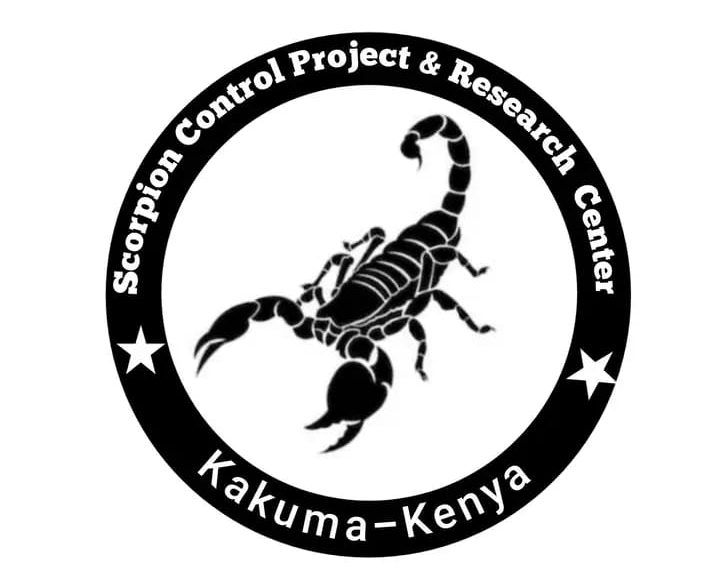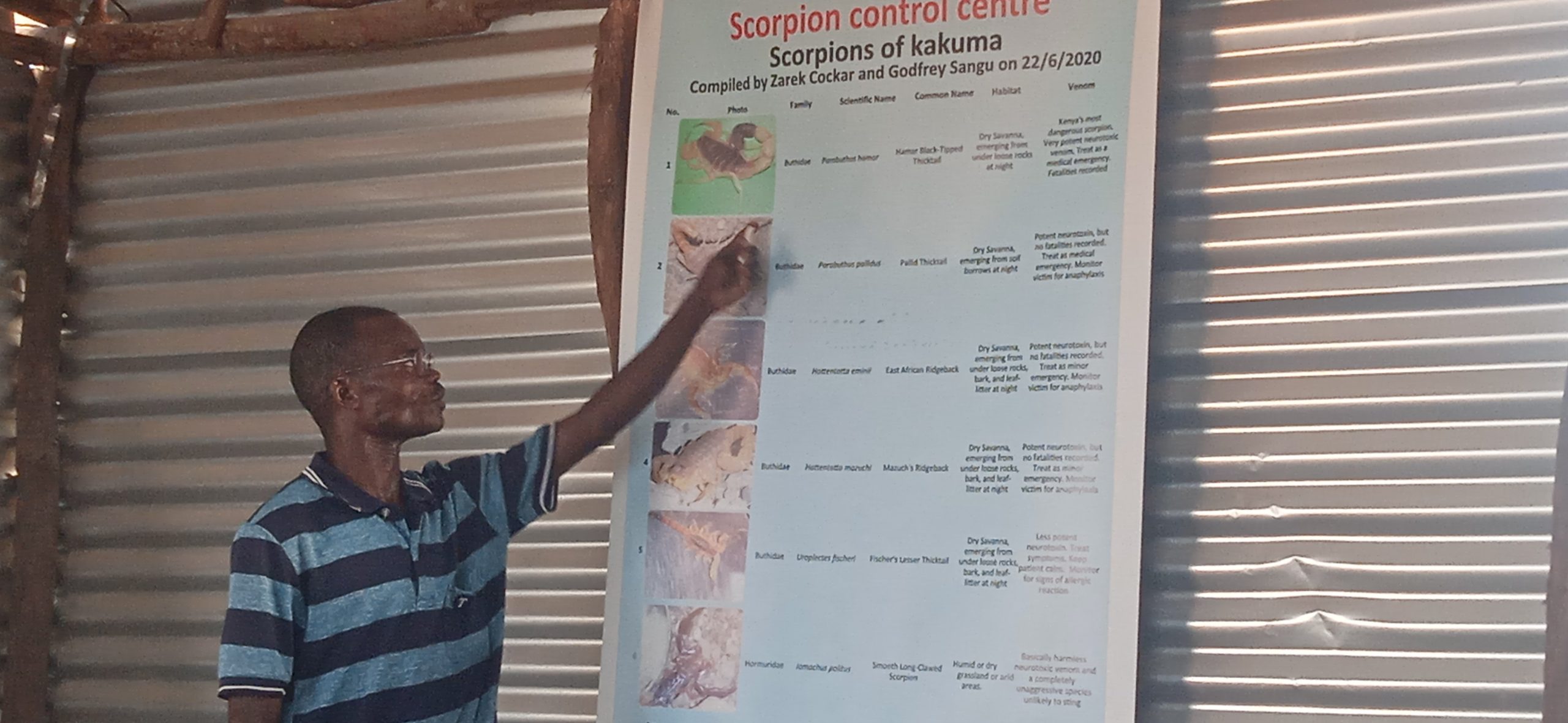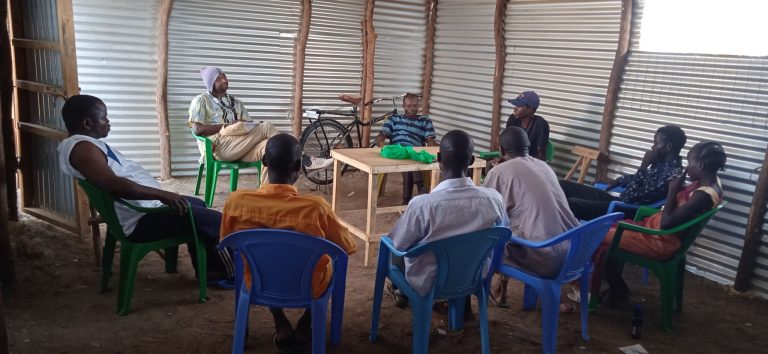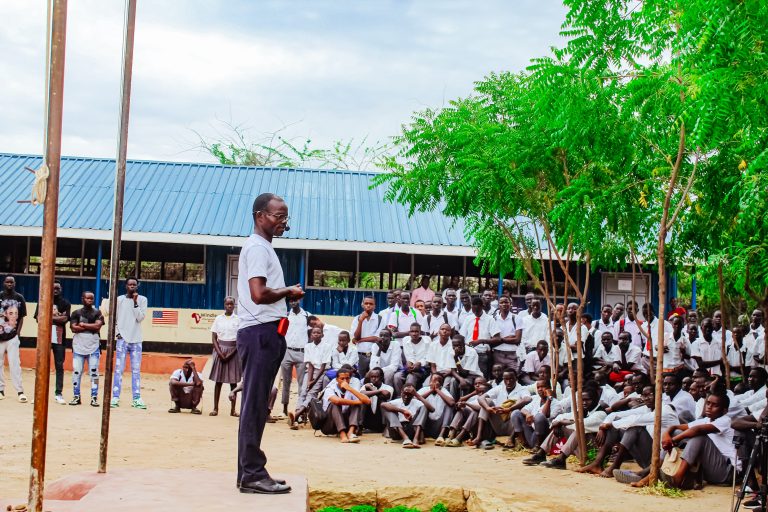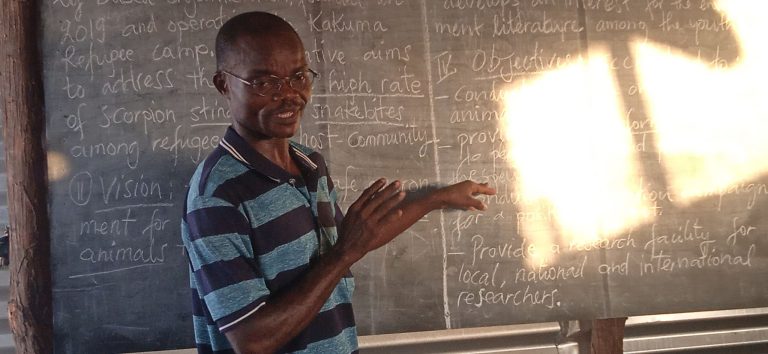Strengthening Our Team: The Heart of Community Outreach on Venomous Animals.
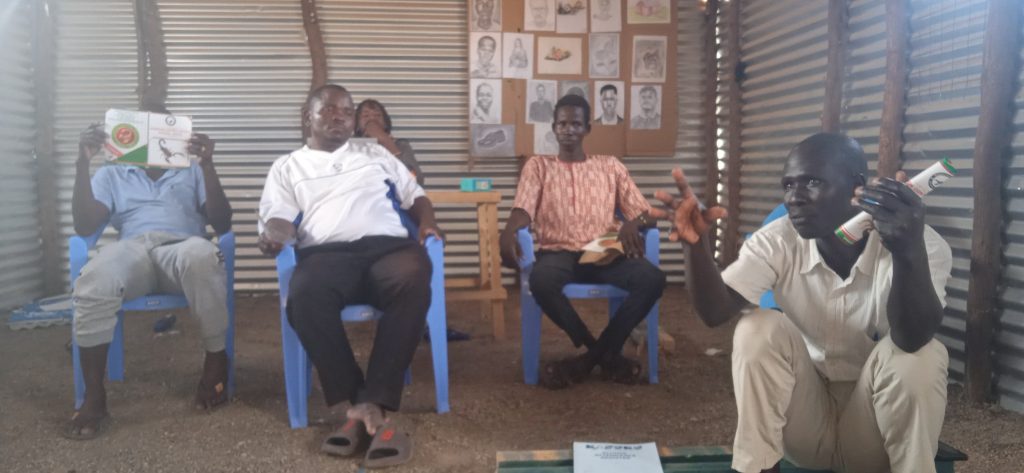
As part of our mission to support for refugee communities, our organization recognized the urgent need to educate and empower those at the frontlines of our outreach programs. This led to the inception of an internal capacity-building initiative focused on one of the community’s most pressing concerns: the presence of venomous animals in the vicinity.
Understanding the Threat
For refugees who have settled in areas unfamiliar to them, the threat of venomous animals poses a significant challenge. Often coming from diverse backgrounds, and sometimes urban settings, they may not have the inherent knowledge that local inhabitants have regarding these creatures. Thus, understanding how to identify, avoid, and respond to potential threats is crucial for their safety and well-being.
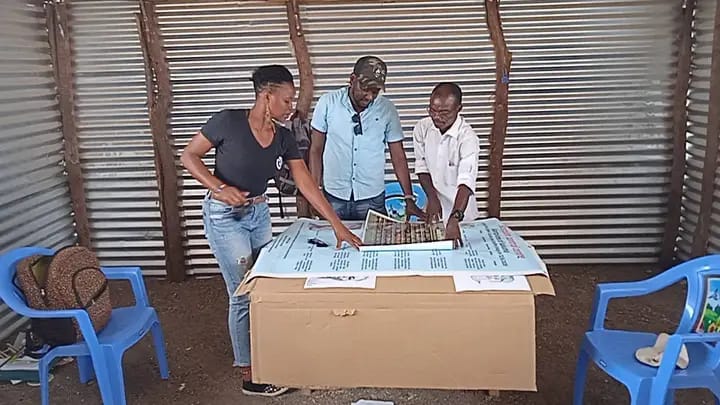
To address this, we’ve launched a series of intensive training sessions for our team, a critical second-to-last session just concluded. These sessions are meticulously designed to encompass a thorough understanding of the local fauna, specifically venomous animals. Our aim is to turn knowledge into power – by equipping our team with the right information, we empower them to serve as invaluable resources for the refugee community.
Why Capacity Building Matters
Capacity building is more than just training; it’s about strengthening the very fabric of community support networks. By investing in our team’s education, we are enhancing their ability to impart vital knowledge to our fellow refugees, which can literally save lives. Moreover, it fosters confidence among the refugees, knowing they have access to well-informed support personnel.
What makes this approach profoundly effective is its sustainable and ripple-effect nature. Educating one person has the potential to educate many, as this knowledge is shared within families and extends throughout the community. It’s not just about avoiding danger; it’s also about nurturing a more informed and connected community that can better advocate for their safety and rights.
Conclusion:
As we progress with our capacity-building initiative, we are reminded of the fundamental goal: enabling self-reliance. Our outreach program is not just an act of charity; it’s a structured approach to equip refugee communities with the knowledge and skills to navigate their new environments safely and confidently. The impact of this program extends beyond the individual, contributing to the resilience and empowerment of the entire community. As we approach the final session, our commitment to this cause only strengthens, inspired by the tangible benefits we’ve already witnessed. This, we believe, is how you support a community not just to survive, but to thrive.
